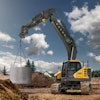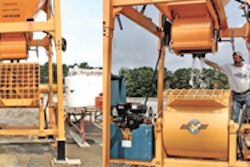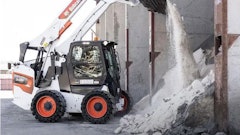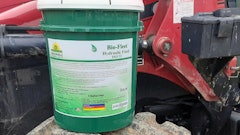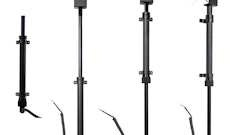W. CONSHOHOCKEN, PA - More frequent worldwide use of asphalt-rubber binders in roadbuilding has increased the need for rotational viscotesters, which are used to ensure proper quality control and assurance. While an appropriate standard for viscotesters does not currently exist, a proposed new ASTM standard will answer this need.
The proposed standard, WK25108, Test Method for Measurement of Apparent Viscosity of Asphalt-Rubber or Other High Viscosity Binders by Using a Rotational Viscotester (Field Method), is being developed by Subcommittee D04.44 on Rheological Tests, part of ASTM International Committee D04 on Road and Paving Materials.
According to George Way, a D04 member, consultant and volunteer chairman of the Recycled Tire Engineering and Research Foundation, the increase in use of asphalt-rubber can be traced to 1994, when ASTM D6114/D6114M, Specification for Asphalt-Rubber Binder, was first approved.
"Asphalt-rubber is a mixture of a maximum 85% asphalt binder and a minimum of 15% crumb rubber derived from recycled waste tires," says Way. "Because of the unique nature of asphalt-rubber, it must be manufactured to proper consistency (viscosity range) at the project site to ensure its benefits. The most practical way to check the consistency at the project site is with the handheld viscotester."
Way says that, from both the supplier and user perspectives, if the consistency of asphalt-rubber is too low, the asphalt-rubber will be too low in viscosity, too watery and will run off the stone. However, if the consistency is too high, asphalt-rubber will be too stiff, will not be able to pump through the hot plant or if pumped will be too viscose in the pavement, hard to compact and prone to ravel off the road.
"The routine use of the handheld viscotester for checking and controlling the quality of the product at a production site in real time is somewhat unique," says Way. "Other asphalt materials are typically not routinely checked or tested at the project or at time of construction but often after the paving is complete."
While Way notes that participation in the task group developing WK25108 has been strong, all interested parties are welcome to participate in the continuing development of the proposed standard. For technical information, contact: George Way, Consulpav, Scottsdale, AZ, by calling 480-990-9451 or e-mailing [email protected]. Committee D04 will meet Dec. 8-10 during December committee week in Atlanta, GA.ASTM International welcomes and encourages participation in the development of its standards. ASTM’s open consensus process, using advance Internet-based standards development tools, ensures worldwide access for all interested individuals. For more information on becoming an ASTM member, please contact Dan Smith, ASTM International, by calling 610-832-9727 or e-mailing [email protected] .

